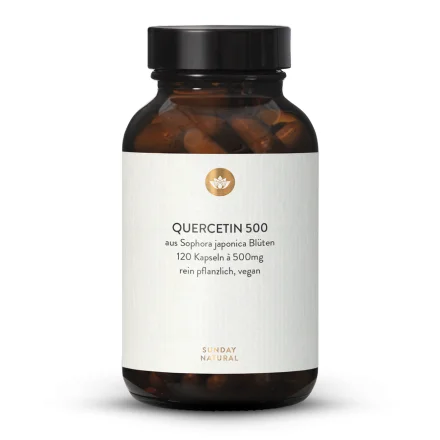Quercetin
Quercetin is a bioflavonoid that occurs naturally in plants - this plant pigment is responsible for the colouration of flowers, while also offering protection against certain environmental influences. The blossoms of the Japanese pagoda tree (Sophora japonica) and the seeds of the Fava d'Anta tree are particularly rich in quercetin, and it can also be found in larger amounts in onions, apples and broccoli, although these are far more difficult to extract.
Quercetin Capsules
Quercetin from completely natural plant extracts with a standardised quercetin content. Available as an extract of the Japanese pagoda tree (Sophora japonica), obtained through pure water-ethanol extraction. No additives, vegan.
Quercetin Liposomal
Quercetin Complex
Taxifolin
Taxifolin (dihydroquercetin) is a derivative of quercetin and a bioflavonoid that occurs naturally in plants, onions, apple peels, citrus fruits and in the bark of various conifers, including larch (Larix gmelinii). The larch is known for its durability and resistance, which it owes to its high quantities of taxifolin.

















